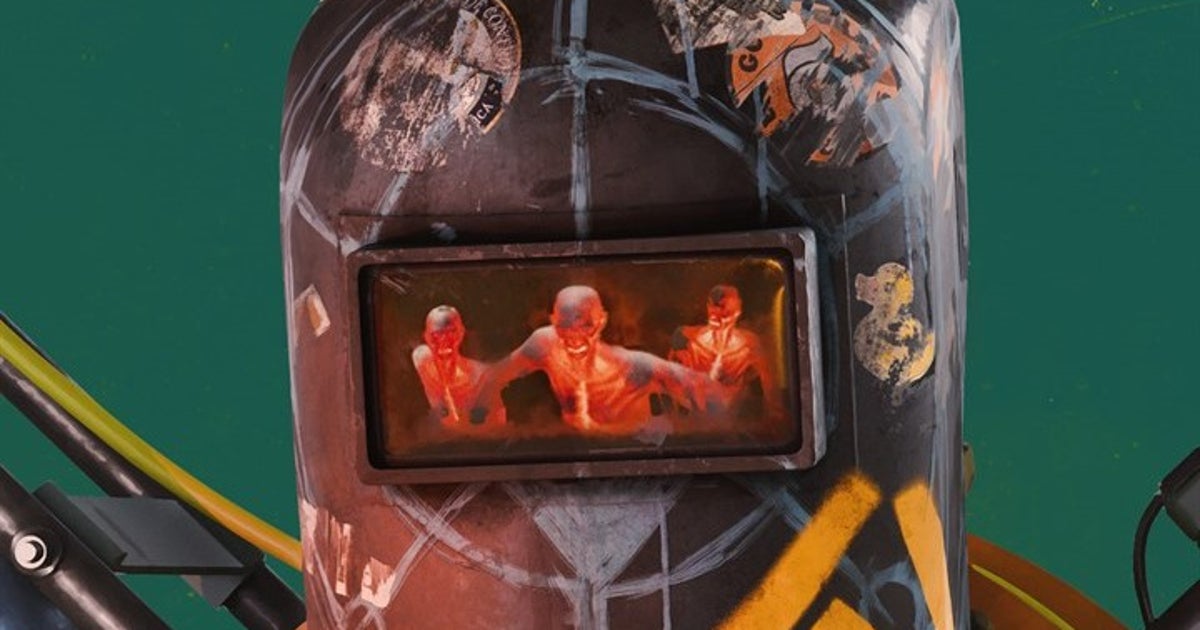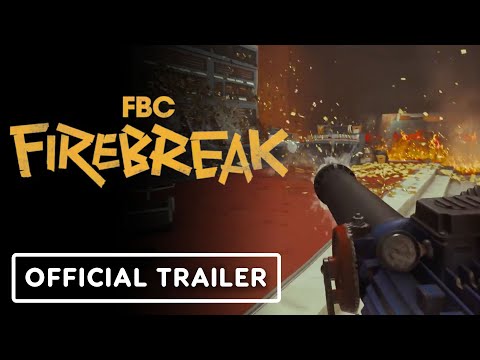I am quietly optimistic about FBC: Firebreak, Remedy’s upcoming co-op, PvE Control spin-off. Having played a couple of hours of it, particularly towards the end of my time, as the systemic complexity began to compound, its coming together at the last minute almost feels like a strength, as I wrote in our big FBC: Firebreak preview. But naturally at a time when live-service, multiplayer-only games – particularly ones from studios known for the purely single-player output – are hardly the most popular pitches in the world, there is plenty of scepticism out there.
Speaking to game director Mike Kayatta, lead designer Anssi Hyytiäinen, and PR director Thomas Puha, however, the sense was – maybe predictably – that the studio remained bullish. They gave a few reasons.
“For me, at least one element there in that conversation is always the predatory practices in player retention,” Hyytiäinen explains. Instead of battle passes, daily objectives and the like, for instance, Firebreak has a somewhat old-school approach of a set of upgrades to your weapons and kits, and a set of unlockable perks, both earned through the main loop of playing rounds of the game, collecting resources and spending them on said unlocks.
As Hyytiäinen puts it, Remedy has intentionally aimed to make it something you can dip in and out of, “the session lengths are short – we’re almost thinking: we don’t have time to play games ourselves, what kind of game would we like to play that doesn’t need to be sucking us in? You know when you lock in, you have 12 phases of stuff that has happened, that just reading through that is already your time gone for the night?”
Kayatta makes similar noises, describing the studio’s inspiration in Left 4 Dead (along with many others), as a case of looking back and saying, “Wow, wasn’t that game great – but also from the perspective of nostalgia, like: wasn’t it great when you could kind of buy a game, and it might be supported over time, but ultimately, I can pick it up and put it down? And I can enjoy that game on my own terms, and not on the game’s terms. Because it feels like so many things that tried to come for Left 4 Dead went in the opposite direction, where they’re like, “Oh here’s the fun gameplay – oh yeah but: battle passes and seasons!””
“I’m not saying all those things are always evil…”
“I’m not saying all those things are always evil,” he adds, “it’s not true. But ultimately, it is something that starts to try to tell you how to engage, and not just like, when you’re in the game, but actually when you’re out of the game, when do you come back to the game? How often do you need to play the game? Check in, do this, do that.”
The inspiration instead, he says, “is more of a meta inspiration to say: what if we came back and we said, let’s just focus on making a game that people like, and if they only play it for an hour a week and then they need to step away for six months, what if that was okay? What if it’s okay that they go play other stuff? What if we built a game and a mandate – and a product, even, on the business level – around this idea that that’s actually okay for a multiplayer game, and just get it in people’s hands?”
The natural follow-on there is Remedy’s decision to put Firebreak immediately onto Xbox Game Pass and PlayStation Plus. I asked Kayatta whether that helped take the pressure off a little, amongst the wider, tougher context of similar multiplayer games – most notably the high-profile failure and ultimately pulling from sale of Sony’s Concord – having some difficult launches.
“From a wider industry perspective, obviously, there’s always the question of: is it cannibalising sales? But of course, it’s not like people put things on Game Pass for free either,” Kayatta says. “I wouldn’t call it a safety net for us,” he adds, in that “games can’t just survive exclusively by trying to be available in one service or another service.” Still, he notes that Game Pass and PS Plus were both “a very welcome partnership”.
“We never used ‘games-as-a-service’, ‘live-service’ with this game, very consciously,” adds PR director Thomas Puha, during a separate conversation. “The connotation of those games is, you know, it’s gonna be ‘battle pass’ this, Call of Duty, Destiny, all these things that were so far from that.”
“[It’s] a very contested market – but then everything is contested…”
Puha adds, too, that the studio is aware it’s “a very contested market – but then everything is contested. There’s tons of games. It’s not like there isn’t a contest with single-player games, I mean we’re up against, you know, Sony heavy-hitters… there’s no point in trying to build something where you’ve got to be playing every day, because then the machinery we’ve got to build here is not something we could even afford – so what’s the point?”
According to Puha, the studio’s other backstop here, meanwhile, is its shift in approach towards making multiple games at once, which Remedy’s been doing since 2016. “It’s very much about spreading the risk,” he says, “you can see it’s near impossible to survive with making a single game and then hoping that it, against all odds, does phenomenally well, and you get some money out of it. Part of our business model is that we work on multiple things, and we’ve said we try to ship something every year.”
The last point the team is keen to make is that FBC: Firebreak has been made with a significantly tighter budget than what you might consider some of its multiplayer competitors. “Of course, not just taking crazy risks by doing massive budgets and so on” is also a factor, as Puha puts it. “Of course we need this game to do well, but then we have realistic expectations.” The team is still only around 50 developers strong, for instance – Control’s team, by comparison, was in the low hundreds. “It’s not like a 200-person, five-year dev cycle.”
To Kayatta, FBC: Firebreak’s director, it also just comes back to the reasons why it exists in the first place. “I think there’s a lot of cynicism around multiplayer games,” he says. “And I think there’s double cynicism about multiplayer games that come from, traditionally, single-player studios. And obviously I feel that – I mean I’m also a gamer.
“But at the end of the day, one thing that is quite nice about working on this project here is that I know – because I live it every day – that this did not come from any amount of cynicism. It has just come from passion and creative people have been given a license to say, you know, what is fun? What do we just want to do? What’s interesting?”
This article is based on a press event at Remedy’s headquarters, for which it assisted with travel and accommodation.

